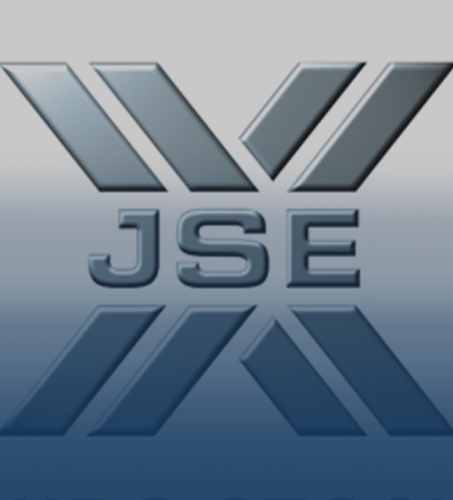Developed markets (DM) fell for a second consecutive month in October (MSCI World -3.1% MoM) as COVID-19 cases surged in the US and Europe and the prospect of new lockdowns rattled markets. European stocks were amongst the worst performers last month as the Eurostoxx 50 fell by 7.3% MoM, with the UK, France, Belgium, and Greece imposing new movement restrictions. US markets were also weighed down by uncertainty around the result of the upcoming Presidential Election, while the prospect of any pre-election agreement on additional fiscal stimulus also waned.
The tech-heavy Nasdaq 100 Index underperformed the broader S&P 500 Index for the second consecutive month, breaking a streak of 11 consecutive months of outperformance, during which the Nasdaq 100 outperformed the S&P 500 by 38%. More than 70% of S&P 500 companies reported 3Q20 earnings during October, with aggregate earnings down 6.5% YoY for those companies reporting and with large industrial companies such as Boeing and Raytheon reporting some of the largest YoY declines as capital spending froze. Banks were also amongst the companies with the biggest YoY earnings declines as they struggled with low rates and massive provisions for potential credit losses. Nevertheless, despite the negative aggregate earnings, the earnings numbers were still significantly ahead of expectations for most sectors.
The only US sectors that were able to eke out a positive returns for October were utilities companies and the Communication Services sector, the latter thanks largely to Alphabet, which surprised investors with strong 3Q20 earnings, driven by significant gains in advertising revenues. Alphabet also announced that it will disclose earnings for its cloud services business separately from next quarter (4Q20), leading investors to believe that the business is becoming profitable.
Emerging markets ([EMs] MSCI EM +2.1% MoM) fared better than DMs in October and have now outperformed DMs in four of the past five months. Much of this outperformance was driven by Asian EMs, particularly China, where the economy has benefitted from a lack of a resurgence in COVID-19 cases and the People’s Bank of China also gave a boost to exporters with currency interventions to mitigate recent renminbi strength.
Brent crude oil (-8.5% MoM) had a tough month on concerns that a new wave of movement restrictions could hit already lacklustre demand. EM currencies were a mixed bag, with oil-exporting countries especially seeing their currencies come under pressure, while Asian currencies generally fared well.
US 10-year government bond yields ended the month 0.2% higher at around 0.85% as polls ahead of the US Presidential Election continued to suggest a strong showing for the Democrats, which is likely to cause an increase in the supply of US government bonds in order to finance higher fiscal spending.
An ageing population, growing EM customer base, and a post COVID-19 world bode well for Becton Dickinson
by Ross McConnochie, Fund Management
Becton Dickinson (BD) is a global leader in medical supplies, devices, and diagnostic systems. The company’s general investment thesis is based on an ageing global population and a growing EM customer base. Medical device businesses are incredibly defensive as doctors and hospitals are reluctant to switch to alternative brands once a specific brand is established in their workplace, while customers are not going to select sub-standard equipment being inserted in their bodies based on price (if they are given the choice). Medical device manufacturers also do not receive as much public criticism and there is not as much controversy around their pricing structures as pharmaceutical firms tend to attract. This is because medical devices are typically paid for by a medical aid or a hospital, which in turn pass the expense onto their customers. In addition, medical devices have far less exposure to patent cliffs and legal battles compared to pharmaceutical companies.
Geographically, 55% of BD’s revenue comes from the US, 21% from Europe, 15% from the Asia Pacific region, and the remaining 9% from the rest of the world. Since China is the company’s fastest-growing market, a Joe Biden victory in the November US Presidential Election would be positive for BD as it will help improve geopolitical tensions between the US and China, which have been fomented by the Trump administration.
BD’s biggest segment, in terms of revenue, is its medical delivery systems in the form of IVs and needles, which accounts for 52% of total revenue. Its business model can be compared to a razorblade model, where the business has a lower margin on the actual devices sold to hospitals but a far better margin on peripherals, used to operate the company’s devices, and disposables. BD’s disposable needles market could be a huge beneficiary of a COVID-19 vaccine (BD has for decades been a supplier of choice for previous global vaccines).
BD’s second-biggest segment is specimen analysis and diagnostic equipment (25% of revenue). Other than growth from testing for COVID-19, this segment has suffered as the Group’s non-COVID-19 tests have been sidelined during the pandemic. We expect non-COVID-19 testing to resume over the coming months as delayed tests cannot be put off indefinitely. We should see significant growth in this segment as the pandemic subsides.
Surgical and related devices such as hernias, tissue repair, grafts, urological catheters etc. account for c. 23% of revenue. This division has also suffered because of COVID-19 since many elective surgeries (deemed to be non-life threatening) have been put on hold due to the pandemic. Again, these are all temporary issues, and it should return to normal with time as these types of surgeries have to be carried out eventually.
We have taken BD’s temporary setbacks as an opportunity to invest in what we believe to be a world-class, defensive company that is well placed to recover with improving COVID-19 infections. This could simply be from the passing of time or it could be sped up by the introduction of a viable vaccine. At current valuations, we believe BD is an attractive addition to the Anchor High Street Equity Portfolio and it should act as a defensive business, complimenting the growth component of the portfolio.
Ping An now a core holding in our portfolio
by Liam Hechter, Fund Management
During the month, we made the decision to consolidate the portfolio’s Asian insurance exposure into our core holding Ping An (listed in Hong Kong), by selling our holdings in UK business, Prudential PLC, which provided us with more diluted exposure to the Asian insurance market. Adding conviction to this decision was the reasonably robust set of 3Q20 operating results from Ping An during the month, which saw a solid recovery of its core life insurance business, after a few quarters of rather lacklustre growth. The Chinese savings and insurance market remains a powerful long-term theme, which we have backed in the portfolio and the recent operating trends at Ping An (operating profit growth of 12% YoY, with core life insurance growth of 16% YoY), coupled with an undemanding valuation of 8.3x forward earnings and a 3% dividend yield, which we expect to compound at a double-digit CAGR, present a compelling opportunity to concentrate our Asian insurance exposure with a higher-conviction position.




